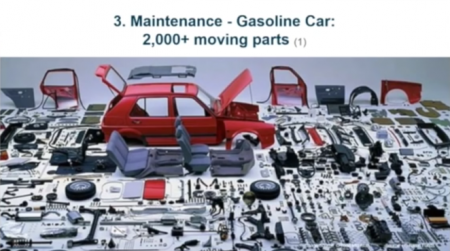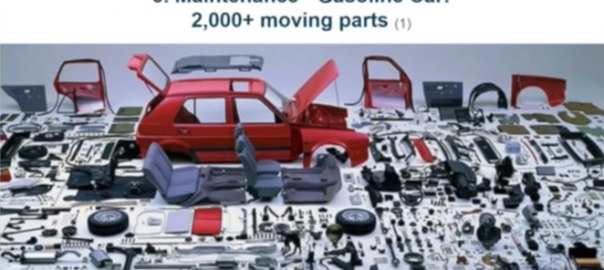My brother-in-law sent me a video this morning of a talk given by Tony Seba at the Swedbank Nordic Energy Summit in March of last year. I started watching it with mild interest, as it covered many of the topics I’ve already been harping on in recent posts:
• Solar power will keep getting cheaper
• Batteries will continue to become more commonplace
• Electric vehicles will soon become a mainstream transport option
• This confluence of technologies will begin to disrupt the economics of our existing energy system
Then, about halfway through, Seba made a claim that I had to stop and rewind: He believes that all new road vehicles—buses, cars, vans, trucks etc—will be entirely electric by 2030. That’s a pretty astounding prediction. Made even more astounding because he’s not talking about one country—he’s talking about the entire world.

The whole talk is very worth watching, but to give a very brief summary, there are two factors coming together to make such a shift possible.
Firstly, from battery tech to solar to autonomous vehicle components, technology is improving and getting cheaper following the same “Moore’s Law” curves that have made computes so cheap and powerful. The LIDAR—a laser and radar system used for autonomous vehicles—sed to cost $70,000 in 2012. By 2016, we’re looking at a LIDAR that costs in the region of $250 and will soon be down at $90. Similarly, says Seba, solar power won’t soon just be cheaper than coal, wind, nuclear or natural gas. By 2020, it’ll be cheaper than the cost of transmission—regardless of any subsidies. Meaning a utility could generate electricity for free, and still not be able to sell it because panels on your roof would still be more competitive. And long range EVs are becoming affordable and mainstream too—providing better performance and lower cost of ownership than their gas-driven counterparts.
Secondly, new technologies are enabling new business models: When a car sits idle in the driveway 96% of its life, that’s a massive opportunity for business model disruption that could change how we think about our relationship to vehicles. From Uber to Lyft, such changes are already taking place in many cities.
Read more: treehugger
